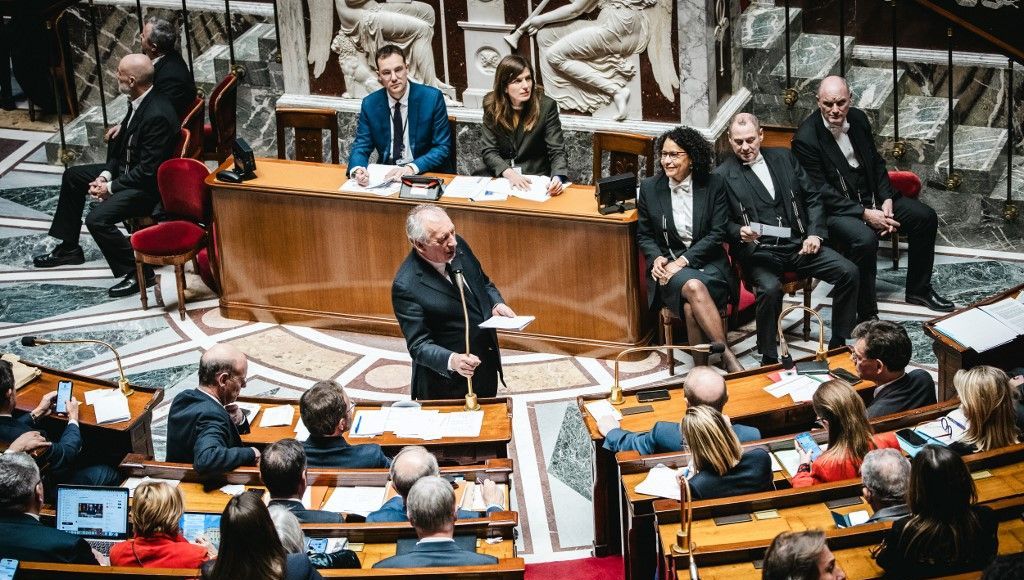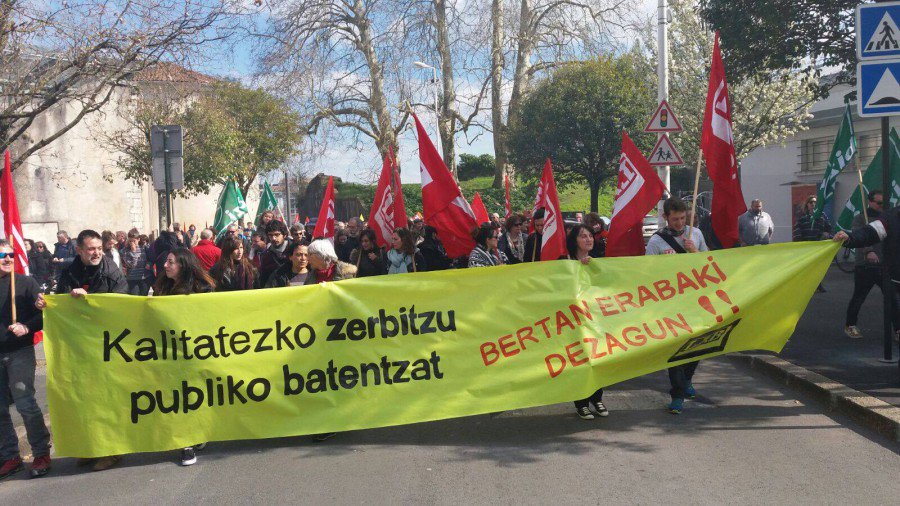Between Macron and Le Pen spent the second round as in 2017

It will be repeated five years ago on 24 April: The competition will take place between Emmanuel Macron and Marine Le Pen. However, if we look at the results of the first round, it is expected that the difference between the two will be narrower. If in 2017 Macron received 66% and Le Pen 34%, the first polls put them very close for this period: According to the survey institute Ifop, Macron would have 51% and Le Pen 49%; according to Opinonway or Ipsos, Macron 54% and Le Penis and Elabe 46%, Macron 52% and Le Penis 48%.
Bringing together 21.95% of the votes, Jean-Luc Melenchon, from the third extreme left, was very tight, with a difference of only 0.8 points with the candidate from the far right. Despite better results than in 2017, two more points, once again it will not be back in the second round. On 24 April, Le Pen receives an unequivocal call from its voters not to vote. As you might think, he has not made any clear calls to vote for Macron. The same message was broadcast by the far-left communist Fabien Roussel (2.31%) and Philippe Poutou (0.77%).
However, Anne Hidalgo (1.74%) of the Socialist Party, ecologist Yannick Jadot (4.48%) and Valerie Pecress (4.79%) of Les Republicains on the right have called to vote for Macron to cut the road to the far right. However, Eric Zemmoure (7.05%) and Nicolas Dupont-Aignan (2.07%) made a clear appeal to vote in favour of Le Pen.Como could not be otherwise, abstention has
been one of the winners of these elections: one in four voters has not gone to vote.
Violent defeat of historic right and left
The Republique in Marche was founded in 2017 by Macron, who promised to break with the old way of making politics, that five years later it has become clear that there has been no rupture. This vote has presented the end of the classic left and right parties, which have not exceeded the 5% barrier (the defeat of the Socialist Party in 2017 has been even stronger from 6.36% to 1.74%, and the right has dropped from 20.10% to 4.79%). Macron has been strong, with a better result than in 2017 and with both ends in the same position: Le Pen and Melenchon. Macron will need the votes from the left to win. More than ever, abstention will have a major influence on the second round.
Lurraren alde borrokan dabilen orok begi onez hartu du Frantziako Legebiltzarrak laborantza lurren babesteko lege-proposamenaren alde bozkatu izana. Peio Dufau diputatu abertzaleak aurkezturiko testua da, eta politikoa eta sentimentala juntaturik, hemizikloan Arbonako okupazioa,... [+]
Urte bat beteko da laster Pazifikoko Kanaky herriko matxinada eta estatu-errepresiotik. Maiatzaren 14an gogortu zen giroa, kanaken bizian –baita deskolonizazio prozesuan ere– eraginen lukeen lege proiektu bat bozkatu zutelako Paristik. Hamar hilabete pasa direla,... [+]
Ur kontaminatua ur mineral eta ur natural gisa saltzen aritu dira urte luzeetan Nestlé eta Sources Alma multinazional frantsesak. Legez kanpoko filtrazioak, iturburuko ura txorrotakoarekin nahasi izana... kontsumitzaileen osagarria bigarren mailan jarri eta bere interes... [+]
Two weeks ago, the financing of the French radio stations was at issue, as the French Ministry of Culture intended to reduce subsidies to local associations by 35%. At that time, there were about 200 associations in the labour market, including Euskal Irratiak of Iparralde.
The... [+]
Three months have passed since the elections to the French Parliament. It was July 7, and to everyone's surprise, the New Popular Front on the left, the FHB, won. With the aim of cutting the road to the far right that was successful in the first round, in the second round the... [+]
























